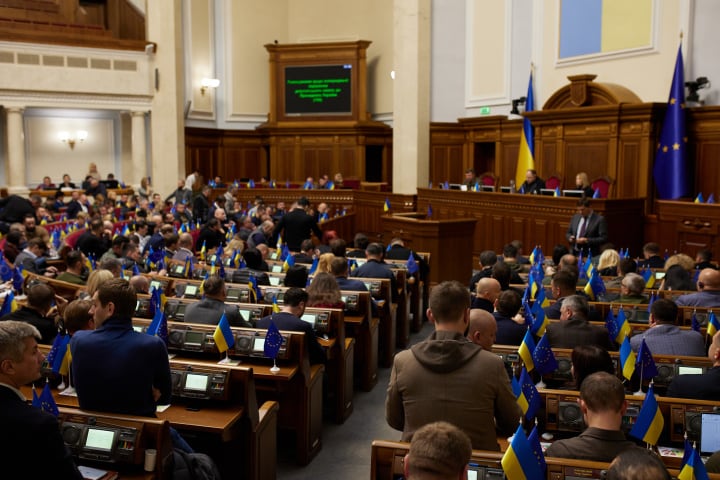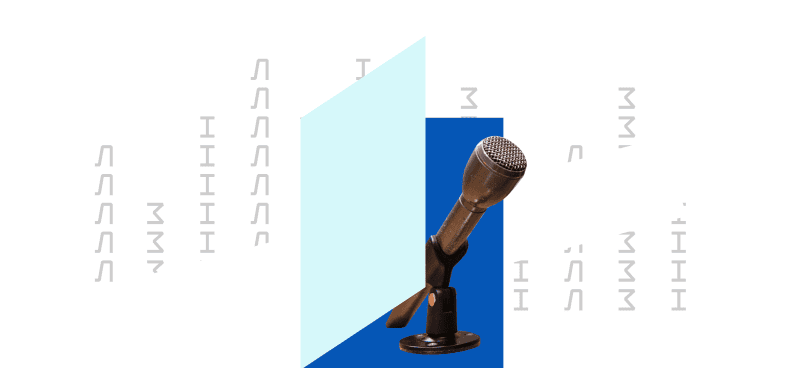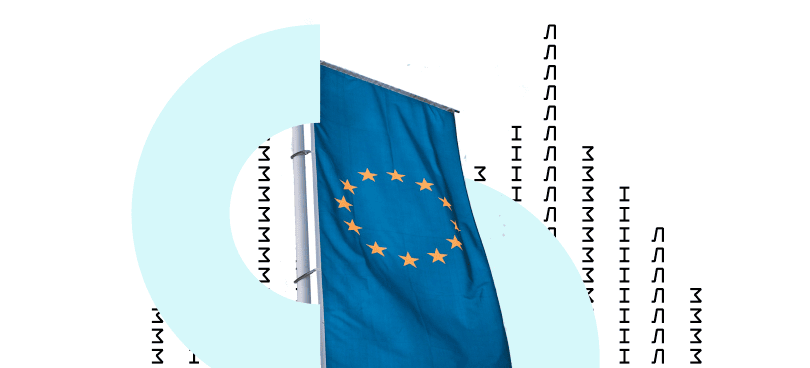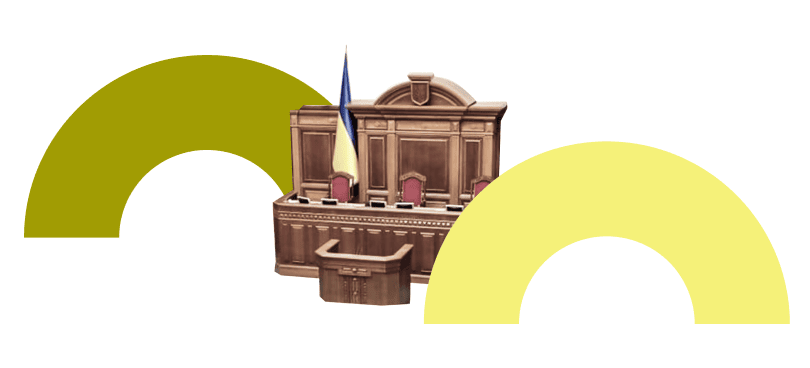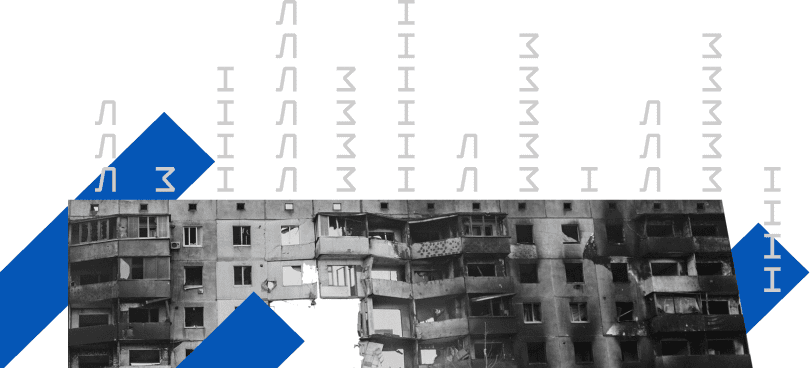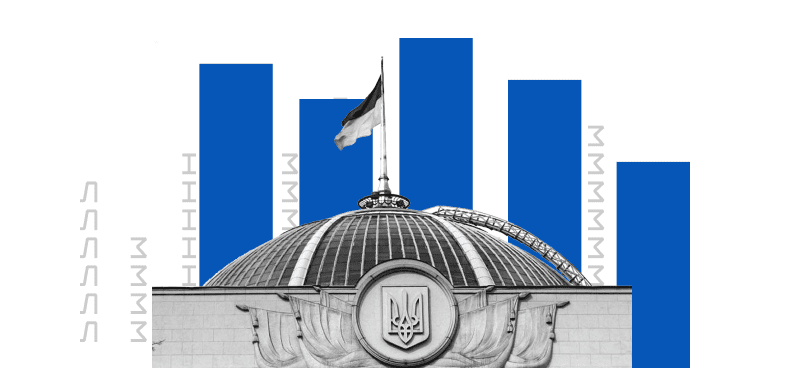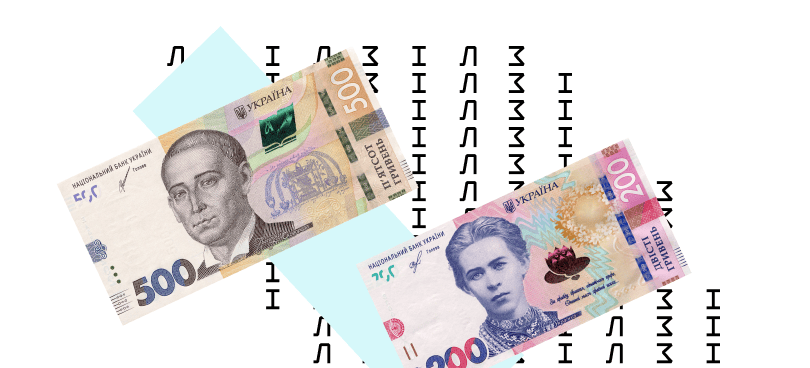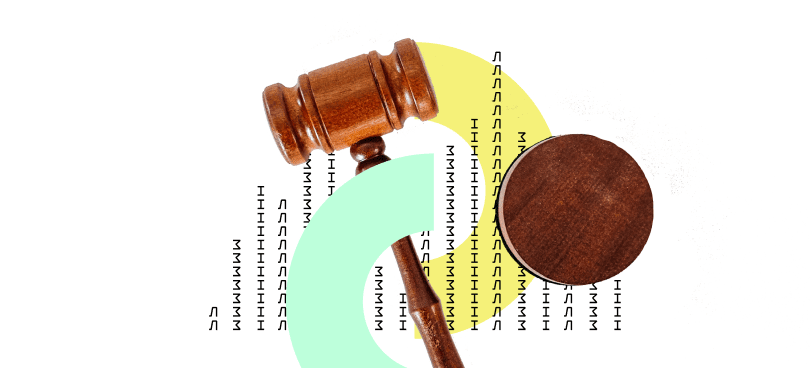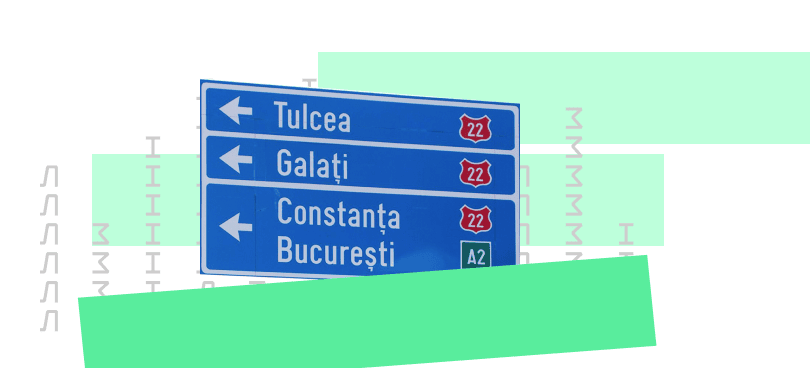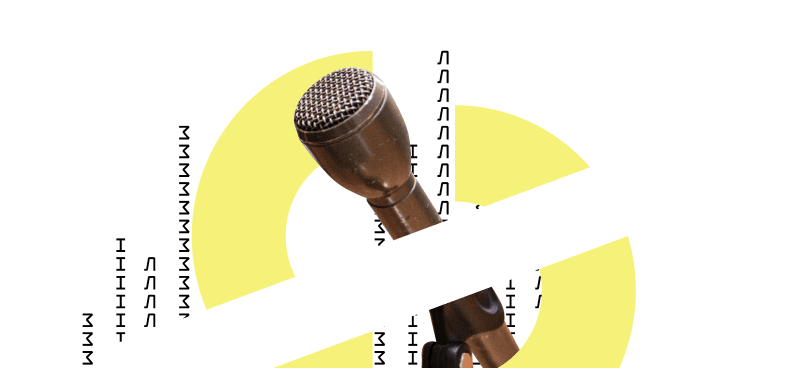Agency for Legislative Initiatives for “Dzerkalo Tyzhnia” (Mirror Weekly).
On the pros and cons of the closed “turbo mode”
Since the morning of 24 February and until now, the Verkhovna Rada — Ukraine’s only legislative body — has continually been exercising its powers in Kyiv, despite the high threat of physical destruction. The constitutional majority of MPs are in Ukraine. Laws are passed. The state is functioning.
Fortunately, it is the first time that the Ukrainian Parliament is going through the unique experience of functioning in a full-scale war. How exactly does the Verkhovna Rada operate with martial law and the real threat of missile strikes being in place? The Agency for Legislative Initiatives analysed the work of the Verkhovna Rada of Ukraine during six months of the war — from 24 February to 6 September (this is part of the seventh session that was taking place when martial law was in effect). Presented below are our brief findings.
Record-setting and real “turbo mode”
Speed, consensus, and efficiency are the three words that can be used to characterise the operation of the Parliament during the war. On the one hand.
During the six months of the war, the Verkhovna Rada of Ukraine accomplished a lot of work indeed. It did so much as to set a record in terms of the number of laws passed in one session. From the beginning of the full-scale invasion until 6 September, 229 laws were passed. This is more than in any other session of the Verkhovna Rada of Ukraine across all convocations (for which data is available).
Why so many, and what are those laws? The lion’s share goes for the laws that govern life in a country during wartime.
The invasion brought to nought a large part of the prior agenda. Since 24 February, a need has emerged to urgently adjust the legislation to the realities of the full-scale war. Relevant laws were developed and passed almost from scratch, and very rapidly.
National security, reallocation of funds, law enforcement and support of the economy became the priority needs and areas of work of the Verkhovna Rada.
During half a year of the full-scale war, the President in fact transferred the law-making role within development internal policies to the Government and MPs. The draft laws submitted by the President during this period were exclusively ratifications, presidential decrees and symbolic law drafts related to the issues of foreign policy, security and defence (which, by the way, clearly corresponds to the distribution of powers under the Constitution).
Half a year of the war can also be called a real “turbo mode”. In addition to the record-setting numbers of passed laws, we see a significant decrease in the time spent on processing and clearing draft laws across all indicators. Parliamentary committees, expert and analytical departments of the Parliament mobilised resources and quickly issued opinions. The processes of political approval of draft laws were also significantly accelerated, and a long-term consensus was in place among MPs in the session hall. Everyone worked in harmony, to the extent possible, and made efficient use of available time and other resources.
Interesting data about plenary time is in our possession: half of the draft laws passed in the first reading were considered for less than 41 seconds; 90% of the draft laws in the first reading were considered by MPs for less than two minutes; half of all the draft laws that were passed in both readings during half a year of the war were considered by lawmakers in the session hall for less than six minutes.
Just to compare: In the last pre-war, sixth session of the Verkhovna Rada, these time indicators were many times higher: half of the draft laws passed in the first reading were considered for up to 15 minutes in the hall; up to 26 minutes of plenary time was taken up by consideration of half of the draft laws that went through both readings during the sixth session.
In fact, for half a year of the full-scale war, what MPs in the Parliamentary Hall did was only press voting buttons – with no scandals, long speeches from the lectern and fights, as it used to be before. This “phenomenal occurrence” can be explained by the following three factors:
- Political consensus was in place — especially so on the issues of defence and security — as well as the need to immediately respond to the realities of a full-scale war;
- Threat to the security of MPs during the sittings of the Verkhovna Rada — Russia has repeatedly “promised” strikes on “centres of decision-making”;
- No online broadcasting for sittings, and thus no need to deliver lengthy speeches targeting voters.
But work efficiency does not equal quality. The new realities of the war and the “turbo mode” resurrected old “bugs” in the law-making system and created new ones.
On “bugs”, “matryoshka laws”, and violations of the Constitution
When lots of laws are passed quickly, the quality of the decisions themselves will suffer, and a certain part of the procedures will be ignored.
A draft law is a crucial document, which, when approved, will determine how the state and citizens shall function in a given area. Before the draft law gets to the session hall, it must be processed at least by the committees and expert departments of the Verkhovna Rada. MPs should familiarise themselves with the text of the draft law and supporting documents. All these procedures are required to ensure at least some quality control of what the lawmakers press the voting buttons for in the session hall, and to shield against hasty and poor (populist, undemocratic or ill-considered) decision-making.
However, with the war being in place, very little time passed from the emergence of an idea to the adoption of laws. Over the six months of the full-scale war, lots of draft laws appeared that were adopted “on the fly”: five draft laws were adopted on the day of registration; 12 more — the following day after registration. Most draft laws (59%) became laws after the first reading.
That said, an opposite trend was in place during the previous two sessions, as two-thirds of the laws were adopted in the second reading. In practice, two readings make it possible to prepare the draft law better, to address shortcomings and errors discovered in the first reading. However, two readings also require more time, which was obviously not available in view of the invasion. Can we be confident that they are all well written and analysed, or at least read? No. Do we know how these decisions will affect the country in the future, especially after the end of the war? This cannot be assessed at this time.
The need to adjust the law-making process to the conditions of martial law created another unusual parliamentary practice, i.e., “matryoshka laws”. These are several laws with different subject matters of regulation, and contents are disguised under one title. Usually, such laws have one content and targeting at the stage of the first reading. Yet then amendments are introduced to them, and in fact, they are supplemented with brand-new provisions that were not only beyond consideration in the first reading but also belong to a different area of regulation.
For example, the Law on Amending Certain Laws of Ukraine regarding the Functioning of the Civil Service and Local Self-Government During the Effectiveness of Martial Law. Its first reading version dealt with the distribution of powers between local self-government bodies and military administrations. Yet at the stage of amendments for the second reading, provisions were added to expand the powers of the Verkhovna Rada and the President. Among other things, based on these new norms, the Verkhovna Rada’s Ombudsperson, Lyudmila Denisova, was dismissed. The new provisions added for the second reading not only related to a completely different topic, but also violated the Constitution, as they expanded the powers of the Verkhovna Rada and the President.
A reminder is that new powers of the Verkhovna Rada and the President may come into being only through amendments to the Constitution, which is prohibited under martial law. Yet the Ukrainian lawmakers ignored the said norm, and this is no singular case during half a year of the war.
Another factual violation of the Constitution is the President’s failure to sign the adopted law drafts within the prescribed 15-day period. This practice existed also before the full-scale invasion, and not only under President Zelenskyi. However, it is particularly visible now — for example, by the beginning of September, more than two dozen draft laws neither signed nor vetoed by the President had accumulated. They have been in limbo for months and do not come into effect. There are no obvious reasons for this phenomenon.
They include:
- The draft Law on Amending Article 3 of the Law on Some Issues of Indebtedness of Defence-Industrial Complex Enterprises that Are Members of the State Concern ‘Ukroboronprom’ and Ensuring Their Stable Development.
- The draft Law on Amending Article 23 of the Law on Mobilisation Training and Mobilisation regarding the postponement of military service conscription of scientific, scientific-pedagogical, and pedagogical staff during the mobilisation.
- The draft Law on Amending Certain Legislative Acts of Ukraine to Improve the Fundamentals of Organisation and Conduct of the Resistance Movement.
- The draft Law on Amending the Law on the Basic Principles of Expropriation of Objects of Property Rights of the Russian Federation and Its Residents in Ukraine regarding the itemisation of certain provisions.
- The draft Law on Amending Certain Laws of Ukraine to Improve the Selection and Training of Prosecutors.
Along with violations of the Constitution, other deviations from the rules do not seem to be so significant, although there were lots of them too. During half a year of the war, up to 67% of the laws (that is, two-thirds) were adopted with violations of the consideration procedures. For the most part, those were violations of deadlines and the lack of required opinions on the draft laws from the Verkhovna Rada’s expert and analytical departments.
In summary, the full-scale invasion did raise many pressing issues, so a significant number of procedural violations are justified, given the situation at hand. Yet this is no adequate practice in the long run.
Currently, an urgent need arises to hammer out special procedures that would enable the legitimate and fast processing and passing of draft laws in conditions of war or other extraordinary circumstances requiring rapid and, at the same time, legal decisions. A clear algorithm of actions is required to ensure the adequate operation of the system, so that the functioning of the Parliament and the entire state in war conditions be not a miracle in which few people believed, but a regularity in the eyes of citizens, international partners and the enemy.
After the abolition of martial law, the Verkhovna Rada and the Cabinet of Ministers, with the involvement of civil society experts, will need to take a stock of the hastily adopted laws in order to eliminate any possible negative aftermaths for the period of peaceful life.
This material was prepared with the financial support of Sweden.

